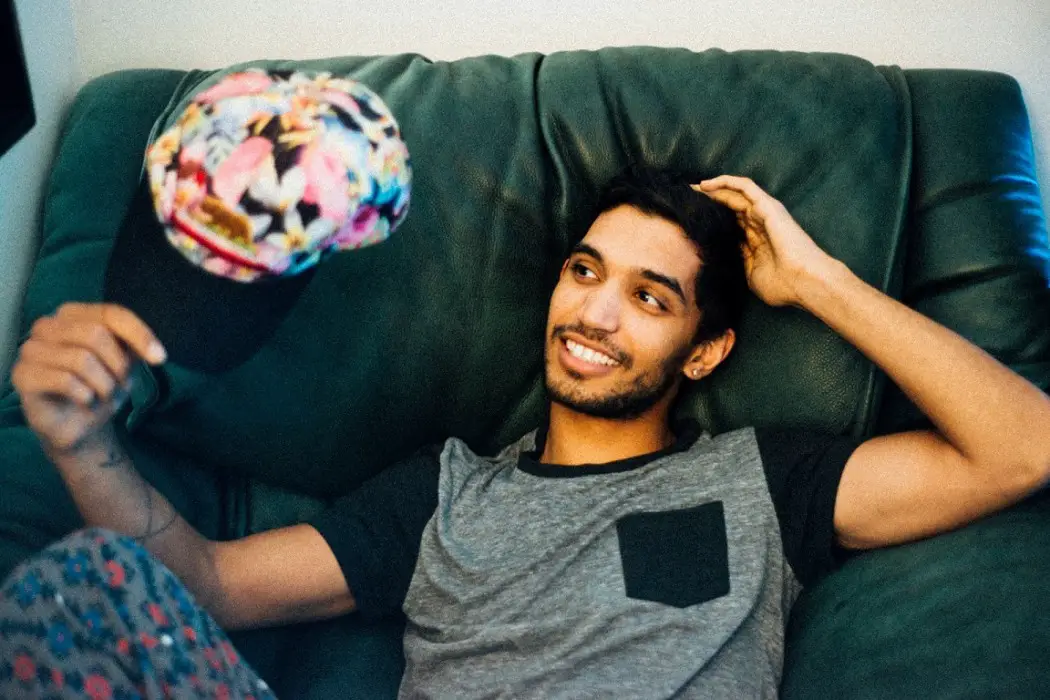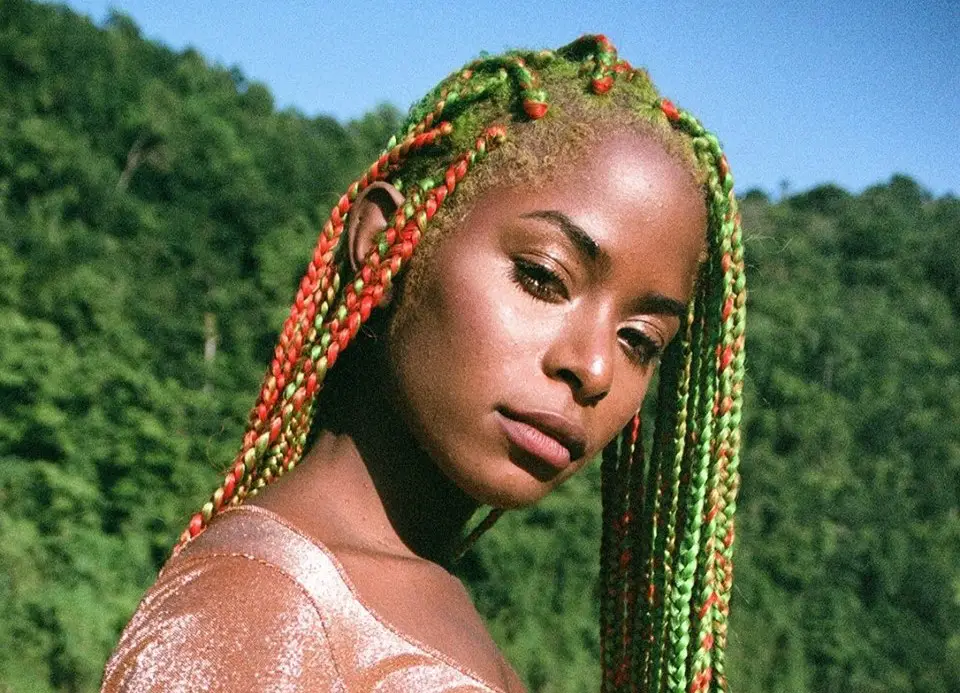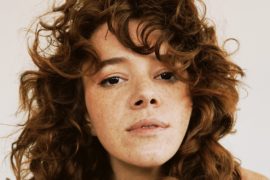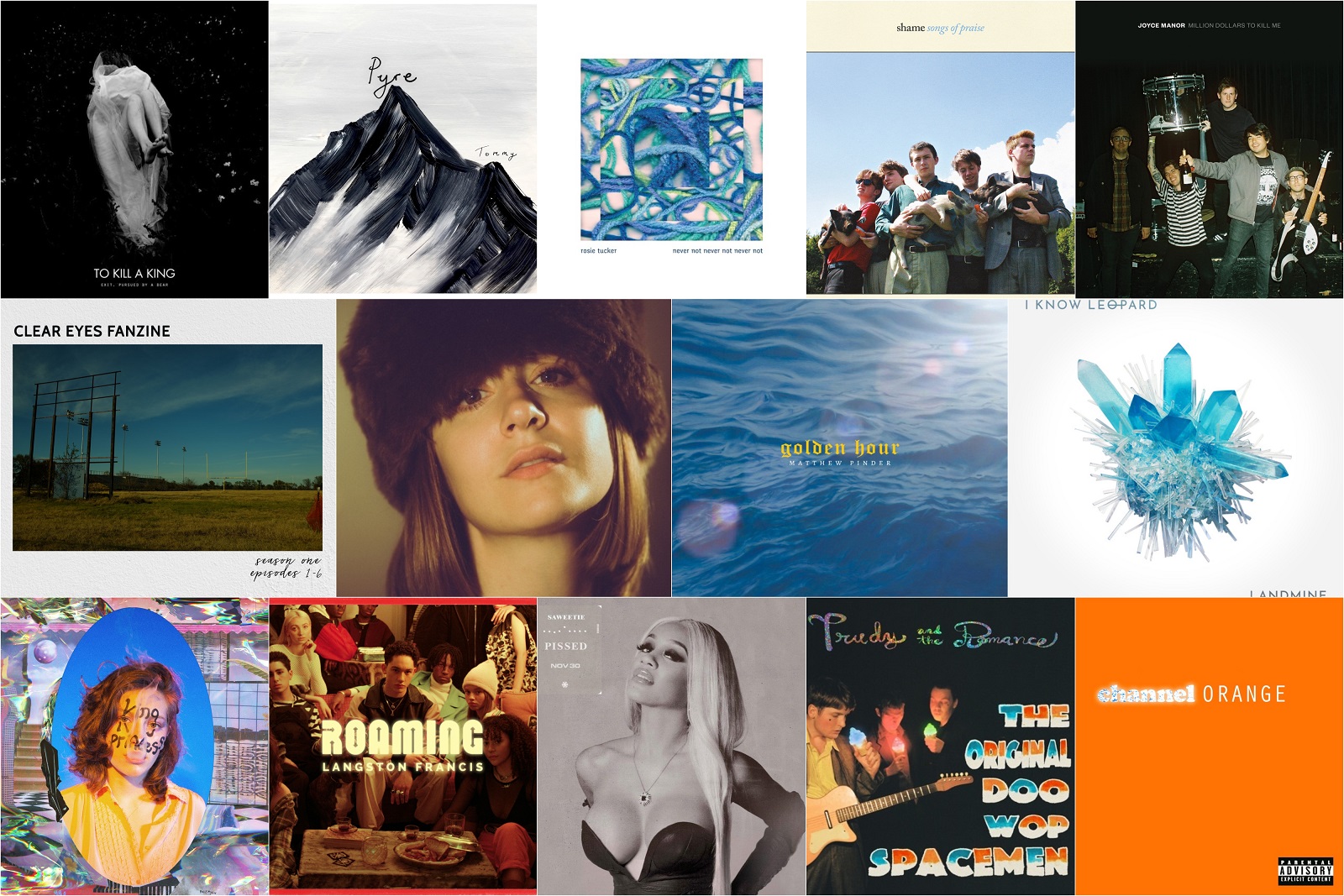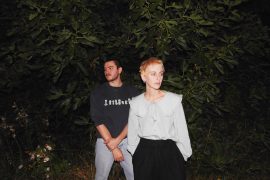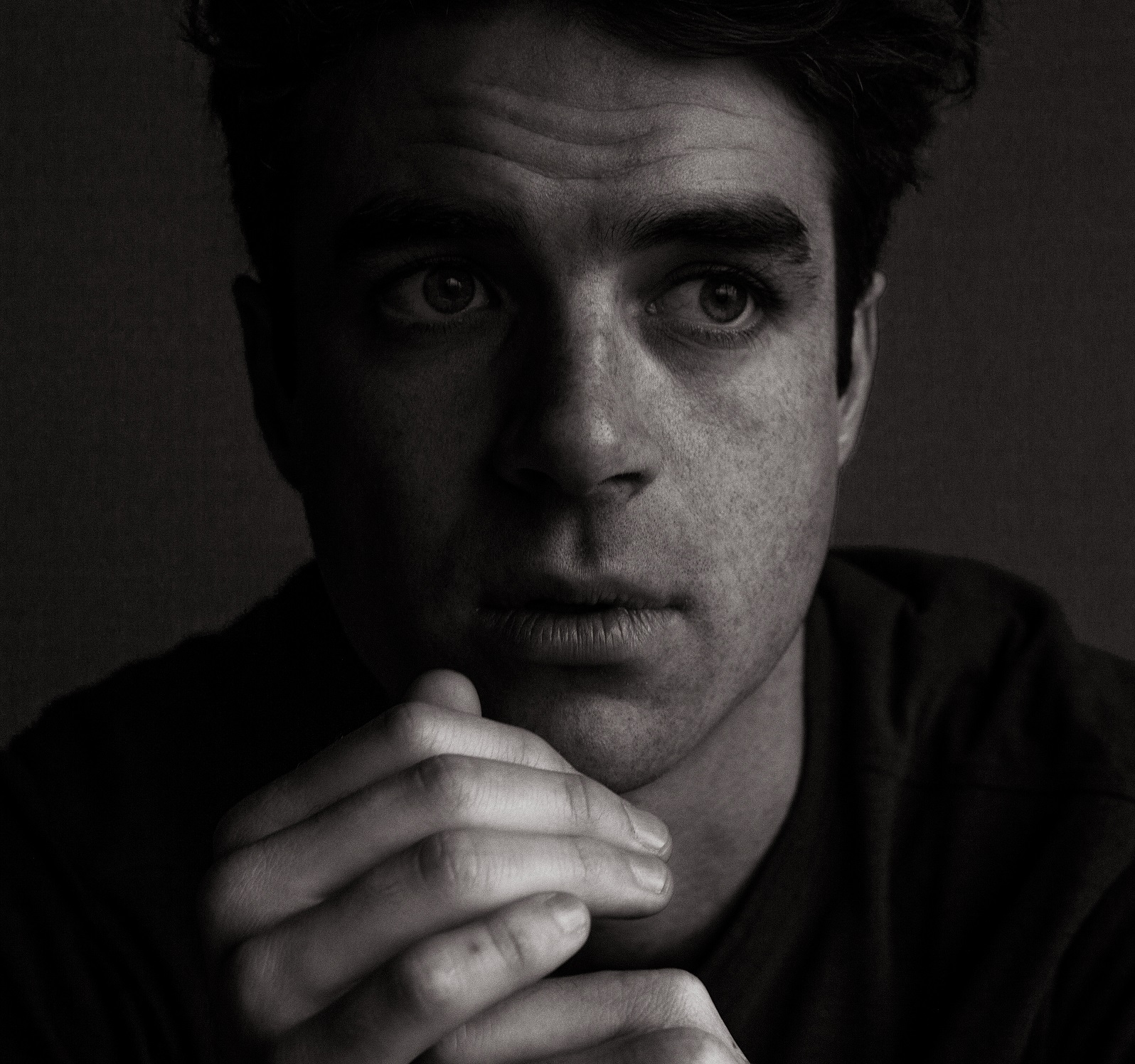In Axel Mansoor’s words, “sometimes when something is catchy, you just assume that it’s catchy because it’s meant to be like sugar. It doesn’t need to have a lot of substance as long as it feels good.”
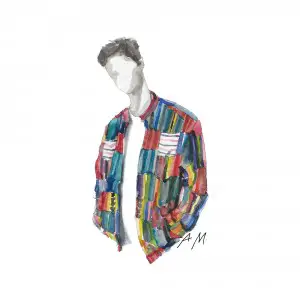
As “Wasted My Love,” Mansoor’s new single, begins, it pulls listeners into a melancholy daze of clarity. There’s no denying the song is inherently catchy, but it avoids the trap that Mansoor mentions. It’s a pop song, and a good one at that, but the track has a deeper meaning. “Wasted My Love” feels good, with an inspiring purpose.
After finding roots in acoustic releases, see “Dive In” from his early days, Mansoor has evolved into a pop prince, yet hasn’t fallen into a cliche pop facade. “Wasted My Love,” is the first release under Mansoor’s new vision. It’s crafted with unusually lush rhythms and intricate textures. The track, written and produced by Mansoor, with the help of friend and fellow-artist Koresma, holds its own among any compared artist due to the song’s originality in a genre sometimes seen as full of catchy tunes with no heart.
Listen: “Wasted My Love” – Axel Mansoor
[soundcloud url=”https://api.soundcloud.com/tracks/309819830″ params=”color=ff5500&auto_play=false&hide_related=false&show_comments=true&show_user=true&show_reposts=false” width=”100%” height=”166″ iframe=”true” /]
While “Wasted My Love” tells the story of a breakup in lyrics, its meaning to Mansoor falls beneath the surface. The song was inspired by Mansoor’s self-discovery in learning to stand on his own and trusting his artistic vision without the opinion of others. The song screams independence and self-worth, perfect for fostering confidence in any form, from break ups to self enlightenment.
The track’s production, along with Mansoor’s smooth voice, makes the track appealing to any ear. The first verse starts out slow and soothing, implying devastation and serenity in moving on. The chorus kicks in with a beat and a change of pace, musically describing a change in perception and adding attitude and bravery. The competing sounds beautifully display a shift in the storyline, mirroring an important shift in Mansoor’s life.
It’s this deeper connection that makes “Wasted My Love” so special. From the way it’s sung to the way Mansoor describes it, it’s obvious the song isn’t some overly-produced track trying to hit all of the trends. It’s the brainchild of an incredibly important evolution in Mansoor’s life, strung together with influences from his past, like the intricate guitar riffs found in the bridge, similar to those which originally inspired his love of music.
That being said, the relationship aspect of the storyline isn’t sold short. The song can serve as a reviving light in the life of the heartbroken. “Wasted My Love” is the tale of redemption and clarity in lyrics like “Yeah, go on and leave I’m making this a new beginning,” found in the chorus. It’s a song you’ll want to blast when you feel that kick of post break-up confidence.
All around, the song feels important, but it’s Mansoor’s personality and experiences that make it sound genius. Atwood Magazine spoke with Mansoor about his metal background, his journey to self-discovery and what makes the track so important to him.
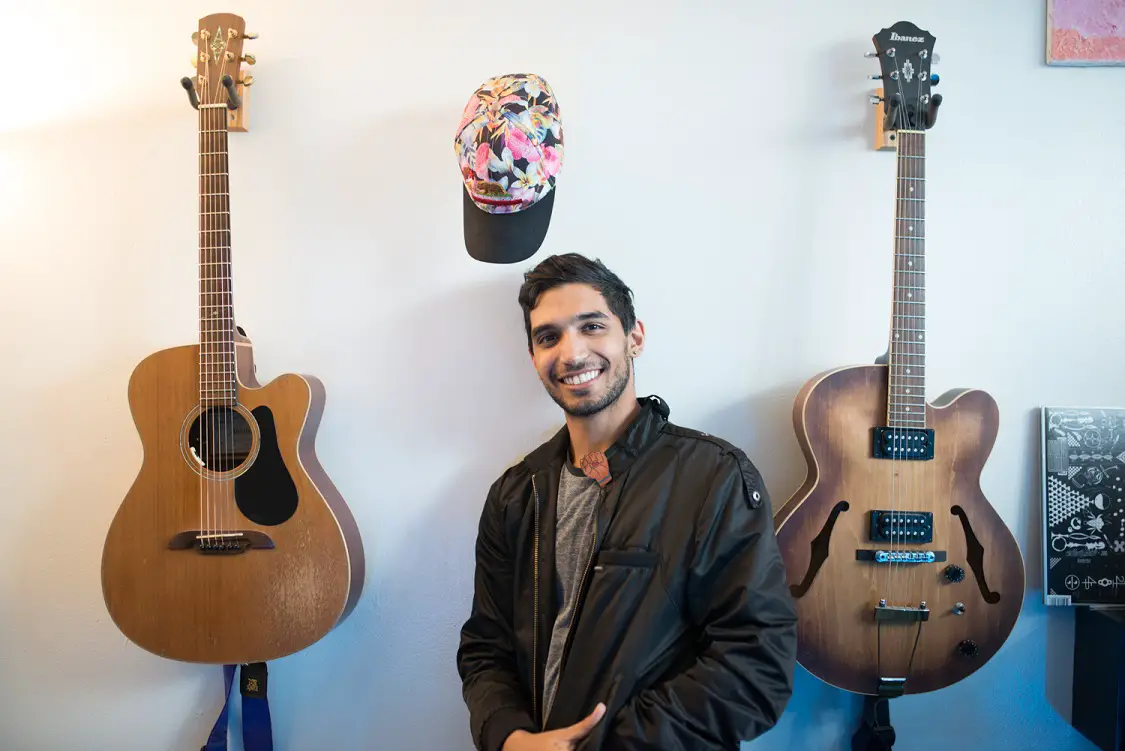
MEET AXEL MANSOOR
On his Metal Background
My older brother is a guitarist and producer. He very much lives in the metal world. The name of his band is actually Periphery. Growing up, he was pretty much my entire channel to music. All of the music I ever listened to growing up was through him. He was eight years older than me. I mean, he still is eight years older than me. I think because of that age gap, he kind of…it was like whatever he was doing, that was what was cool. I pretty much idolized him and wanted to follow in his footsteps. He was listening to a lot of metal and hard rock. Ever since I can remember listening to music, he had turned me onto things like…it started out softer with things like Nirvana and Foo Fighters, more commercially…friendlier to the ears sort of stuff. Really awesome music. I still love Nirvana and Foo Fighters and Incubus and bands like that. A lot of guitar bands.
But then, that was in list second or third grade I remember listening to those bands. With every grade, as it progressed, the music got heavier and heavier. By like fifth grade I was listening to bands like Korn and Slipknot and some classic stuff like Metallica, too. As my brother’s taste got heavier and heavier, he would give me whatever he was listening to and he would sit me down and be like: “Listen to this until you like it.”
I think it kind of helped me gain…looking back, it kind of taught me that if you spend enough time with anything, really, you can learn to love it. Especially with metal music, I think as a kid…most kids don’t immediately hear metal and are like, “Yes, I want to listen to this for the rest of time.” But, listening to a lot of metal, especially early on in life, it did a number of things for me. A, it was basically why I was attracted to the guitar as my very first instrument. Just because all of metal has a…it’s so guitar-based and so technical. But also, the technical nature of that kind of music, that had a really big imprint on me at the very beginning.
From Metal to Mellow
I started playing guitar, again, just because of my brother. I think when I was like 13 he was like, “Hey, Axel. You should learn how to play guitar.” I was like “Why?” and he said, “Well, because it’ll make you cool and girls will like you.” You know, he was right.
The reason I started and really fell in love with guitar was being able to play the kind of stuff that was on a lot of metal records. It was just so crazy. I remember I would go on YouTube and watch videos of people playing these incredibly technical riffs, including people like my brother, and I just remember being like, “Man, I wanna do that. I wanna be able to do that crazy riffing.” And that was what got me into guitar at the very beginning. I would just sit for hours and learn by ear different metal songs. That was an interesting foundation because I think it gave me a really strong appreciation both for, not just technically, but also melody.
It’s also kind of funny because as I’ve gotten more and more into the pop world…you know I don’t really listen to metal anymore. The only metal that I’ll listen to occasionally is my brother’s band. But, I do feel like having that kind of background gave me…it kind of differentiated me. And I feel like, in some ways, it still differentiates me. There’s not a lot of writers or a lot of people in the pop game that have a metal background, or even an appreciation of metal. A lot of them grew up listening to Britney Spears and Justin Timberlake and NSYNC and stuff growing up and have always been into pop stuff. For me, I started with real, real heavy music and then in eighth grade, I discovered Jack Johnson and John Mayer and chilled way the fuck out. Then, finding…I got really into acoustic music around eighth grade, ninth grade, tenth grade. I started listening to more, relative to metal, easy listening music. That kind of ended up being a foray and served as my gateway into pop.
On his Musical Roots
Like I was saying, my brother was always giving my music and he was never really into the pop stuff. He kind of had an appreciation for it back then, but most of the time, he was not…he wasn’t really listening to any of those more commercially viable records. I kind of discovered them more on my own or what friends would show me. John Mayer and Jack Johnson, specifically, had a huge influence on me.
That’s just kind of how music was a part of my life. Interestingly, my dad is completely tone deaf, so music was never something that came from him. My mom…my parents are both immigrants. I’m a first generation American along with my siblings. I think like a lot of immigrant parents…my mom signed us up for piano lessons when we were kids, but I just remember ironically hating them. This is when I was like six or seven. I fought so, so hard against learning piano. Now, I regret that so much. I wish I had continued them.
But I really do have to thank my brother for being, pretty much the reason that I became a musician, or at least spent so much time with music. Because it didn’t really come from any other member of my family. My mom would play Andrea Bocelli around the house a lot and a lot of classical music like Chopin and some Beethoven. That stuff didn’t really connect with me when I was a kid. Now, I love it. But, back then, for some reason, I didn’t really vibe with it. 15:18
So, I do really have to thank my brother for being my introduction and sort of…he kind of pushed me along the path of music for a really long time. Yeah. I would say that’s a lot of the musical background.
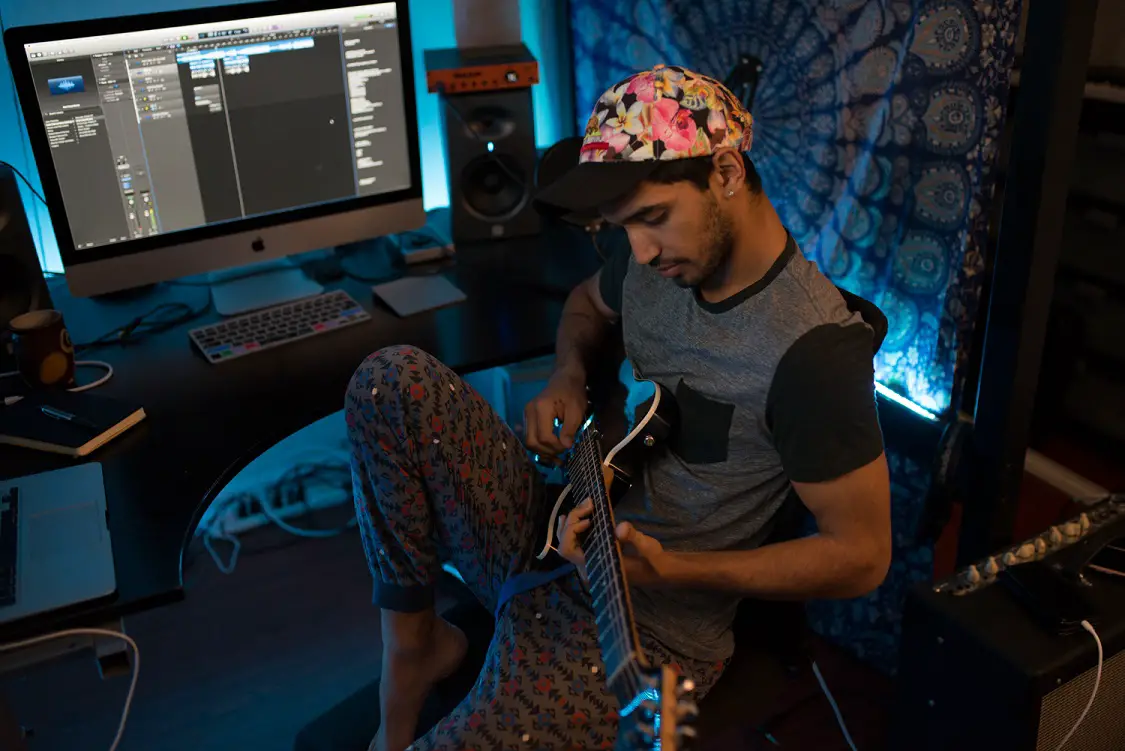
On Writing Songs
So, interestingly enough, writing music…as soon as I picked up guitar I was writing songs. They were bad, you know, they weren’t any good. It was never a decision. I never, in my mind was like, “Okay, I’m gonna write songs now.” I remember there was a very specific moment where I had been playing guitar for like two months, this is when I was 13. I was in like eighth grade and I had been playing guitar for like two months and I just started writing something. And as a 13-year-old I wasn’t like, “I’m gonna sit down and I’m gonna write a song.” It was just like…I really enjoyed playing guitar and because I was self-taught and I hadn’t really found any new songs that I wanted to learn, I was just messing around on guitar and I started connecting things. Just being like, “Oh, I like this note and I like this series of notes. Oh, okay, this is a thing and I can just repeat this over and over. Oh, here’s another part.” I don’t think it was much of a conscious decision. For me, I think, looking back at least, that sort of self-expression was just very natural for me. I think maybe I’d always been looking for something kind of like that. Guitar just made it very easy to just kind of sit and mess around and end up with things.
I guess in some ways you could just call that the writing process. You just mess around until you have something that you remember and you like. Then you can just recall it again and whala, a song is born.
So, I’d say I pretty much started writing accidentally right along the same time that I started playing guitar. I didn’t start writing…and you know those were instrumental songs because I didn’t really start singing over guitar stuff that I’d written until I was like 16 or 17. There was a good three or four years. And a lot of the stuff that I was writing was very inspired by my brother’s music and the metal stuff I had been listening to, so a lot of it was very technical, riffy, all over the place kind of stuff. When I started singing, I was basically writing the same exact kind of songs and just trying to say words over that kind of stuff. I remember very very specifically when I was like 16 or 17, I was talking to a friend just about writing vocals over a song and I specifically remember saying something like, “Words don’t matter, man. Words are just a medium for melody.” And it’s so funny because I think a lot of that was the metal influence. At the time, I was…in metal music, there’s a lot of screaming and stuff. The words are less important than the emotion and the melody. Even when they’re singing, at least for me, when I read metal lyrics now, most of them aren’t very good. They’re not… they don’t carry a ton of meaning for me. They’re not very artful in the way that they’re used. I think there’s a lot more emphasis on the musicianship, the ability of all of the individual players to do really crazy stuff and really aggressive sounding stuff. I think, in that world, it just seems like the words really do take a backseat. That was kind of…that was how I thought of words. And it’s been a really interesting transformation over the last, I’d say four or five years, where I went from being that guy, being like, “Oh, words don’t matter, they’re just a vehicle for melody,” into…I think John Mayer especially, Jack Johnson, and also another artist, which I’m sure you’ve heard of, Death Cab, or Ben Gibbard, I think Ben Gibbard’s lyrics are just fucking incredible.
I think being exposed to those kinds of lyrics, I was like, “Woah, this is the first time that I’ve really realized that words just themselves are so, so powerful.” That’s also kind of led into now, I don’t listen to a ton of it, but there are a couple of hip-hop and rap artists whose lyricism I love just based on the lyrics themselves. Anderson.Paak is a big influence. I don’t even know if he’s an influence, I just listen to him a lot. I just think he’s an incredible artist along with, I think Lil Dicky is also, in a really different way, is a really incredible lyricist.
As I wrote songs, I started when I was 13, and now I’m turning 25, so it’s been a little bit. It’s been like 11 years. It’s been really interesting to see, looking back, how my entire writing process, not just the process but also what I believe is important in writing, has really shifted. Now…I was always really insecure about my lyrics especially a couple of years ago because I had just started to appreciate what words could do, and I was trying to make cool lyrics. And even now, because of the way that I started writing and where technicality and melody were big parts of my early music, it’s like, that’s where I’m comfortable. Writing melody, writing stuff that’s kind of very musical, that’s kind of where I feel at home. And when I say musically I just mean things that are a little out of the pop…where things are a bit more predictable and a bit more formulaic. It’s things that are familiar to the listener’s ear. And instead, doing things that are a bit more musical, that’s stuff that I kind of, I can…that’s home for me whereas writing really poignant but understandable lyrics, that’s the stuff that, when I’m really trying to spend time on a song and really craft it into something beautiful, for me, that’s the most important part now. It’s just so funny that that’s how I feel considering six years or something I was totally shitting on lyrics. I think it just goes to show how the writing process is constantly changing. The more you open yourself up to that change, the better you get to become.
On His New Upbeat Pop Sound
So, okay, so let’s say like 13, 14 and before, that was metal phase. Then from 16 to 19, I had a real strong acoustic phase where I just became obsessed with acoustic guitar, especially just acoustic instrumental players. Like Andy Mckee, I don’t know if you’ve heard of him but he’s a finger-style instrumentalist. He was a really really big influence…he was one of the reasons that I switched from electric metal kind of guitar playing to acoustic guitar and I was all acoustic all the time. I got really into other acoustic artists. Another really good one is Ben Howard. I think, because I was listening to so much of that kind of music, I really wanted to write songs that were like that.
And John Mayer also has a lot of really incredible acoustic songs. So, I guess the switch is just really as my music taste has changed, I think whatever you’re listening to really ends up influencing whatever you’re making at the time. So “Dive In” was written probably…and that was actually written with my buddy Charlie Snyder, that was written probably three years ago. Although, funnily enough, “Wasted My Love…” I’ve had this song for a while. I think I started writing it like two years ago and it’s just gone through iteration after iteration after iteration. I think the song has evolved from that time where I was doing more acoustic stuff like “Dive In” not just because my music taste has changed, but also because I started to take a much more involved role in deciding what my music was gonna sound like.
Watch: “Wasted My Love” – Axel Mansoor
[youtube=https://youtu.be/YOUlcsjZlw8]
On Fighting Insecurity
In a lot of ways, “Wasted My Love” is this marker for me. The song is about transformation. It’s about personal transformation and it’s really just because that’s what I’ve been going through for the last couple years. I’d say about two or three years ago was when it really started and I’d kind of hit a really dark point in my life. I think it was…it was for a lot of different reasons, but you know, I had a lot of anxiety and a lot of stress and I didn’t know how to deal with it. I was super, super insecure and I felt like I was making music that I…every time I sat down and tried to make music, by the time I had the end product in my hand, I always was dissatisfied. I always felt like I didn’t get what I wanted in the end. And when I talk about these end products, these were long prophecies. Like I wrote an entire album and got it produced, worked with two different producers, spent like $4000, this is as a 19-year-old, so these were really involved prophecies. It’s not like I was sitting and twiddling my thumbs. I really spent a lot of time. Then, after all that time, I would have the finished product in my hands and I would listen to it and I’d be like, “Man, I don’t know why, but it doesn’t fulfill me. It’s not what I wanted when I set out to make these songs into something. It wasn’t what I wanted. And I think after I’d gone through that experience, I was so like, “Man, am I even cut out for music? Maybe I should just do something else. I’m never gonna make it.” That was the kind of thoughts that were filling my head on a 24-7 basis. Things got pretty dark. I kind of just spiraled into this really dark place. I was sad all the time and I felt uninspired. I couldn’t do anything.
And the real big shift that happened was I was like “I need to learn how to take control of my own destiny.” I wasn’t thinking of it in as big of terms as destiny, but it was like “Wow, I really don’t feel like I have any control over my own life.” The steps that I took were not musical initially, but they ended up becoming a big part of my musical identity. I entrusted my musical identity to other people. Originally, when I would go to…like this album that I was just kind of describing, I went to this producer and the attitude that I had, we did like 10 songs, and the attitude that I had was like “You’re the producer. You know everything. Who am I? I don’t know anything, so whatever you say goes.” And looking back on that, it was because I had like no confidence. I like didn’t believe in myself at all and I didn’t even play with the idea that just because I liked something, that was enough. Or just because I wanted a certain sound in my head, that was enough to roll with. And so I entrusted all of these musical decisions and a lot of my musical identity to what I thought other people wanted: to pleasing others. And of course, especially when you’re trying to make art, if that’s the approach that you take in hindsight, of course at the end of the day you’re not gonna be happy with whatever you make. IT’s not even a compromise. It’s like, “Who’s music is this?”
I didn’t even feel like I took an active role cause I was just like “You’re the producer. You’re the smart one. You’re the talented one. I don’t know shit so I’ll just do whatever you say is good.” And I think a big, big shift was me saying “You know what, I need to take steps to learn how to believe in myself. I have to take steps to learn how to love myself and find that sense of inner confidence. Find that sense of an inner foundation that I can pull on and also, just figure out who I am and what I like and what I want.” These are big questions. These are big ideas. I think addressing them was the only way that I was able to get out from under myself.
I spent the last three years, two to three years, I spent…I did some traveling. I did some soul-searching. I traveled across America for three months by myself just taking Megabus and BoltBus and couch surfing. I put myself in a lot of different situations cause I was just trying to figure out who I was. When I was in that really dark place which, like I said, was about two or three years ago, right before the switch was, one of the big issues that I was having was I had like a total identity crisis. I was like, “I don’t even know who I am. I don’t even know what colors I like, you know? Like I don’t even know what my favorite color is.” And it was just sort of this… the last three years have been this process of me slowly but steadily taking steps to figure out who I am. What do I like? Not relying on whether or not someone else is like, “Yes, you like this,” or “No, you don’t like this.” But finding an internal compass and figuring out how to be aware of that and how to follow that. That’s been through a lot of like…I started meditating a lot. I started journaling.
I do have to give a bunch of shoutouts to my ex-girlfriend, for helping me figure out all of this stuff because I was hopeless. And I really didn’t know what to do. She was the one that was like “You should start journaling. I think you really need to address these kinds of questions and figure out what it is that you like.” Because I spent a lot of time trying to be the kind of person that I thought other people wanted me to be, both as a person and as an artist. Again, the past two, three years have been this not always smooth, but always really important process of self-discovery. It’s taken, like…you know, art imitates life. And life imitates art. I think the two are so interconnected. You really can’t separate the two. As I’ve been able to dig deeper and learn more about myself and become more comfortable with who I am and figure it out, “What do I like,” or “What don’t I like,” and be okay with those answers and not feel like I have to justify them to anybody. That’s also allowed me to make the music that I want.
That’s kind of how “Wasted My Love” has endured this transformation. That song started…I started writing it when I was in this place of like “I don’t know what I want, I don’t know who I am,” and over the course of time, I started teaching myself production. I stopped relying on other people as much. I started teaching myself how to record. I started playing with sounds all on my own. I drafted and redrafted and did all of this progressive digging and exploration and self-exploration. As I did that, the song started to take form. It started to take the form of now what you hear. When it started, it was a completely different song. Arguably, I think it was a worse song because it was just so much less focused.
So, I think, to answer your question in a non-ranty way, a big part of why a song like “Dive In” sounds so different from a song like “Wasted My Love” is because I spent a lot of time figuring out “Who am I and what do I like?” and not looking for external validation. You know, one of the things about my brother…and I’ve had some other figures in my life like this too but, so much of my life, I spent looking for validation from other people. Especially musically, my brother was like God. If he liked something that I wrote then it was the best song that I’ve ever written, no matter how I felt about it. If I wrote something that I really liked and I showed it to him and he was like, “I don’t like it,” it would destroy me. Absolutely destroy me. I would be like, “I’m never gonna make music again.” I’d be so…for weeks I wouldn’t be able to stop thinking about it. And it was because I placed so much importance of like…I would only ever be happy if someone else was telling me I could be happy about it or I could be proud of it. I really wasn’t even aware that I could have just my own internal “I like this and that’s enough.”
Even as I grew out of making my brother that, there were other people in the industry or just other musicians and artists that I looked up to that would replace and play that same archetypal role where it would be like a person who made really dope music who I really looked up to and if I would show them a song and they really liked it, then I could sleep at night. If I showed them a song I was really proud of and they didn’t like it, I would just be like, “Oh my God, I’m never gonna make it.” I gave so much power to other people. I let the world have power over me. That was…for a long time I never even questioned that. I never even thought it could be any other kind of way. I think that has a lot to do with insecurity, right? I think the most confident…and I don’t mean confident like people who seem like they’re confident because they talk really loud and they walk really tall and they seem like they have their shit together. I live in LA man, there’s a lot of people who pretend like they’re confident. I mean that quiet confidence. People who know themselves and don’t need to prove to anyone else who they are. And they’re fine doing their thing without necessarily requiring validation from the outside world. Obviously, a little validation is always really nice. We’re social creatures. It’s important to feel connected to other people, but I think true confidence is quiet. It comes from within and it doesn’t need anybody else. Insecurity is the total opposite. Insecurity is loud and it’s constantly looking for reasons to exist, you know? I identify as somebody who used to be incredibly insecure. I was constantly looking for reasons for people to confirm my existence. It was sort of like if somebody wasn’t telling me I was good, or if somebody wasn’t complimenting me or making me feel like I was great at music or a great person or whatever, it was like, “Why am I even alive? Why do I even exist? What’s the point?” I think when you get to that point…that is the kind of chokehold of insecurity. You’re constantly relying on people to basically justify your existence. That’s a really tough place…it’s not really sustainable. I think that’s why, people who are insecure…there’s a lot of deep unhappiness because they don’t know how to give that to themselves.
On Finding Confidence
It’s been so recent. There are still days when I struggle with it. Even now when I write a song. Even if I’m super excited about it, I kind of have to temper myself when I show it to other people and I kind of have to put a little bit of a guard up to remember, “You really like this. Remember that.” Because just because someone else doesn’t like it doesn’t make it bad. I’m still very much going through this process. Even though I talk about it in the past, it’s still very much a part of, you know, I don’t think I’ll ever just be 100 percent completely confident. I don’t know if anybody is. I think we go through periods of confidence and we go through periods of more insecurity but as I kind of look back, I would say…I’d say it was probably a year or a year and a half ago where I remember I was…it’s weird. It’s like…it’s kind of like when you’re walking up a mountain, right? You’re walking up a mountain and you’re walking and walking and…the climb is arduous. It’s tough and you’re tired and you just want to get to the peak and you feel like, “Aw man, I don’t know if I’m ever gonna get to the peak.” And the peak is me being like, “You know what? Whatever I feel is enough.” And then, you’re kind of just climbing and climbing and then one day you’re just all of a sudden at the peak. It’s like a switch kind of hits even though it’s been a long climb.
So it's kind of like you get there, and you don't realize how you got there. One day you just reach that point.
Yeah, you’re just there. To make it uncomplicated, I was just sitting and listening to my own music and I was just like “Man, I’m actually pretty good at music.” It was a total switch. I was like, “Huh. I actually make music that I can be proud of.” I think it was all this life stuff that had been in the mix or had been kind of gestating forever or for the last however many years. It got to a point where I was just writing music and I was listening back to it and I was just like, “Huh. I’m really stoked on the stuff I’m making.” That’s enough. I think since I had that moment about a year or year and a half ago, that’s when things really started to turn around for me, musically. I started to discover my own voice as an artist and had better tools both mentally and creatively and emotionally to really interrogate that and be like, “What is my voice and how do I continue to explore that? How do I continue to be true to myself while also evolving?”
There was no one thing necessarily that led to that switch, but it was like everything that happened was important to leading up to that point.
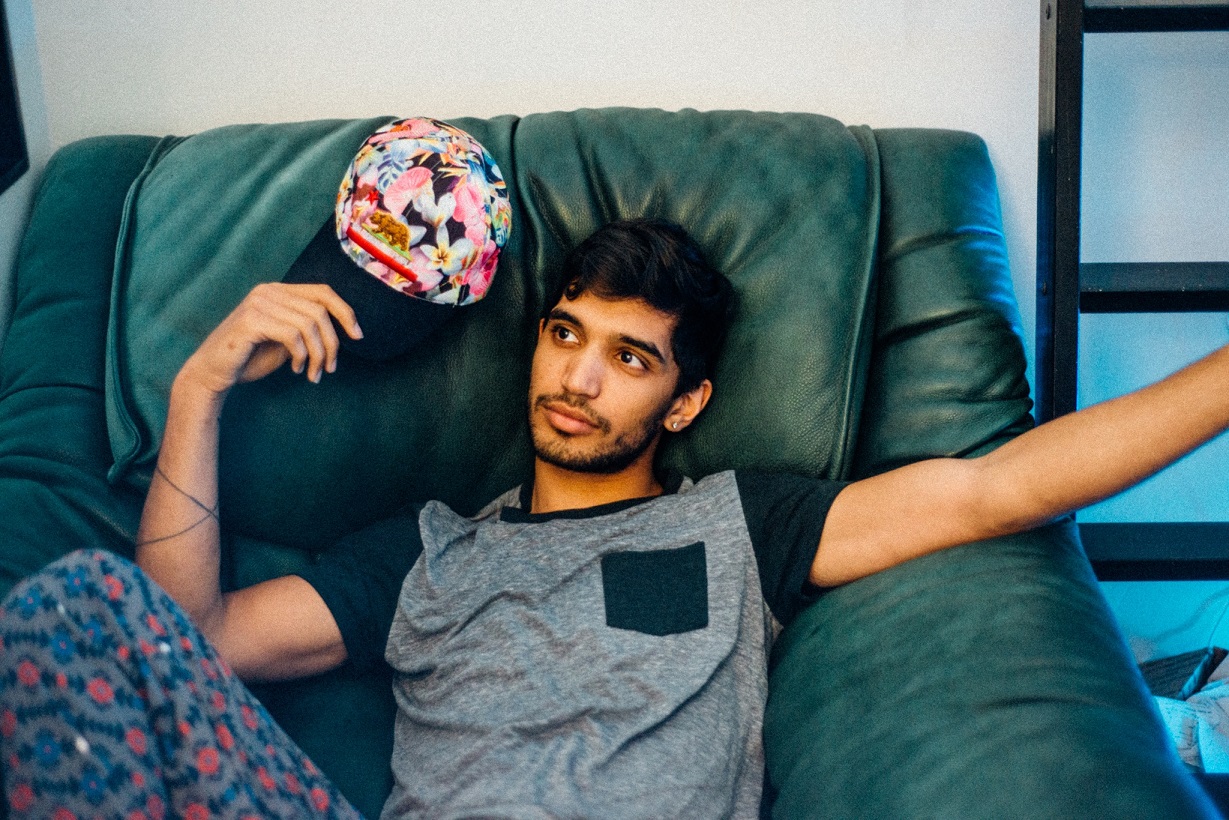
On “Wasted My Love”
Yeah. You know it’s funny cause I’m definitely somebody who…I think through things by talking out loud, in case you haven’t noticed, and just having this conversation with you right now, I think it kind of helps underline for me “Why is this song important to me?”
I think it’s because, like I said before, the song is very much a song about personal transformation. It’s a song that is about finding a sense of self-worth. I think, because that has been such a big part of my life, that’s why the song is so important. It’s like a journal almost. It marks off an exciting period in my life where I’m finally like “You know what? I’m worth it.”
To talk about the song specifically, a lot of the time when I write songs now, I don’t know why, but it helps me to write about it like I’m talking about a relationship, talking about a guy and girl kind of thing. But a lot of the time it’s motivated by something else. I think, also, as an artist who’s trying to make pop music, that also tends to be a more accessible medium in order of which to write things. “Wasted My Love” is written from this perspective of it’s like a relationship gone wrong. It’s like a guy or girl getting out of a toxic relationship, but the chorus very specifically…the way the song starts out, it starts in this kind of…there’s a lot of reverb. It’s kind of washy and the vocals kind of fragile. It’s supposed to be in this kind of whishy-washy, fragile state of mind like, “Oh, this person just left me and everything is bad. I don’t know what’s going on. I don’t know up from down or left from right,” you know, that kind of state. That’s why when the chorus hits…I wanted it very specifically to have this kind of transformative effect where it’s like, “Oh, this song kind of starts in one place and then all of a sudden this switch hits and it’s like BAM! It’s a new mindset.” And that new mindset is “Holy shit, I’m worth something.” You wasted MY love. My love is worth something and you’re the one messing up by leaving. It’s that realization. It’s going from this place of like, “Oh, the world doesn’t make sense to me and I don’t know my place in it.” Then you wake up and you’re like, “Actually, I’m totally worth something and the person who left me, the person that forgot me, the people that I was so reliant on to feel like I had this stable sense of foundation, they’re the ones that are messing up. They’re the ones that don’t understand my value and my worth.” That’s why the song takes this…I call it a defiant tone in the chorus. I really wanted it to have that sense of waking up and being like, “You know what man, you’re fucking up. You’re messing up, not me. I’m not the one that’s making the mistake here. If anything, this experience is teaching me how valuable I truly am, and I’m gonna take that and run with it.” It’s like kind of having that waking up moment. I think that’s pretty much reflective of what I would say has been the most positive and most enjoyable musical period of my life which is when I had that moment for myself.
On Why Music Matters
With my music in general, I really don’t care about becoming rich. I really don’t care about becoming famous. If those things happen, I won’t be upset, but the reason that I make music, and the thing that I derive the most fulfillment from is when I feel like I’ve created something almost…not selfishly, but something that was just for me. Then, that something was able to take root in somebody else’s life and influence them. Inspire them. Motivate them. Help them to do something that they would not be able to do prior, or to get them through something.
I feel like…I was in such a dark place and I haven’t told you about growing up, but growing up, long story short, I was bullied a lot. I was bullied basically all over the world. I grew up with this chip on my shoulder that fed the insecurity monster, and I didn’t know how to love myself. I feel like if I was able to get through that, if I was able to be such an insecure person and such a validation seeker, and go through a tough but important and necessary process of learning how to love myself and continuing to be on that path, I feel like one of the best possible things that I can do is help other people to get on that same path. People who equally are just like, “Shit, I don’t know who I am.” Maybe people who don’t even realize that they don’t know who they are. But just to be able to help people discover their own sense of self-worth and their own value. That’s why I feel like “Wasted My Love” is sort of like me being like “If I can do it, you can do it. If I can get through this process and realize my own self-worth, here, take this and I know you can do it too.”
— — — —

